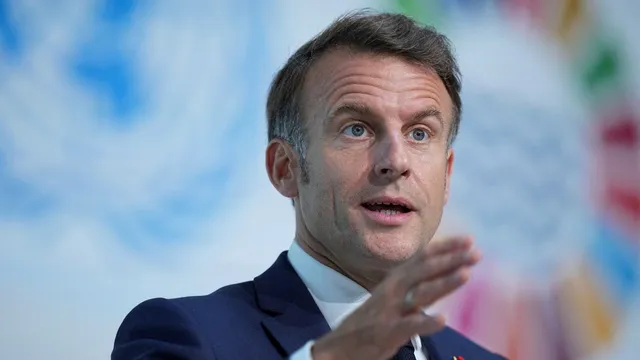
Macron intends to ban social media for children under 15
2025-06-11 19:00- French President Emmanuel Macron announced plans to restrict social media access for children younger than 15, based on expert recommendations.
- This decision comes in response to public safety concerns, highlighted by recent violent incidents involving minors.
- Macron is urging European collaboration to address these issues, but will implement the ban independently if necessary.
Express your sentiment!
Insights
In 2024, French President Emmanuel Macron announced intentions to prohibit access to social media for children younger than 15. This decision arose from recommendations made by the Screens Commission, a group formed by Macron that includes medical, psychological, and legal experts. The Commission advised that access to social media should only be granted to those above 15, the age they define as the digital majority. Macron highlighted that age verification should be feasible on social media platforms, making the ban plausible. He warned that if a broader European initiative was not in place soon, France would independently enact the social media ban. The motivation behind Macron's move is underscored by a recent tragic incident in France, where a teaching assistant was murdered by a 14-year-old student. This heartbreaking event has led to increased scrutiny over youth behavior and access to harmful content online. Macron linked the necessity of online safety for youth to a broader discussion on public safety, emphasizing that the rising violence involving minors cannot be overlooked. He stated, “It is not acceptable for a child or teenager to have a bladed weapon on the street or at school,” advocating for stricter controls and a zero-tolerance policy regarding weapons. Macron’s dedication to children’s welfare appears evident, as he seeks to balance freedom of expression in the digital age with the need for safeguarding young individuals from potential dangers of social media. He expressed urgency in implementing these measures, revealing a commitment to taking decisive action if European unity does not materialize in the ongoing discussions regarding online regulations for teenagers. This urgency has been reinforced by rising public concern over teenage access to social media and its connection to harmful behaviors. In light of these developments, it is crucial to monitor how these proposed actions unfold in France and across Europe, particularly as many nations are grappling with similar issues of regulating minors' online activities. Macron's call for a unified European approach reflects a shared concern among EU nations regarding the mental health and safety of young internet users. The outcome of these discussions and policies will likely have lasting implications on the broader social landscape and how nations choose to govern children's access to technology.
Contexts
The impact of social media on children's mental health in Europe is a crucial area of study, particularly as digital engagement becomes a dominant facet of youth culture. Social media platforms have revolutionized the way children interact, express themselves, and build their identities; however, this has also led to significant mental health implications. Numerous studies indicate a correlation between high social media use and increased levels of anxiety, depression, and loneliness among children and adolescents. These platforms can create a distorted reality, where comparisons with peers lead to feelings of inadequacy and low self-esteem, compounded by the pressure to maintain an idealized online persona. In Europe, the prevalence of social media has surged, with children as young as six engaging with various platforms. The European Union has recognized the potential harms of social media and has initiated policies aimed at protecting younger users. Despite these efforts, the lack of comprehensive regulations and the rapid evolution of technology leave many children vulnerable. Research highlights that children who spend more time on social media report poorer mental health outcomes, as they are often subject to cyberbullying and negative online interactions. Furthermore, the addictive nature of these platforms can lead to decreased offline social interactions, exacerbating feelings of isolation and disconnection. The role of parents and guardians is critical in mitigating the adverse effects of social media. Educating families about the potential risks associated with unchecked social media use is essential. Many parents may not fully grasp the extent of their children's online activities or the implications of social media on their mental health. Therefore, fostering open communication about social media, setting boundaries, and encouraging balanced use of digital and real-world interactions can help protect children's mental well-being. Collaborative efforts among parents, educators, and policymakers are necessary to create a safe and healthy online environment for children. In conclusion, while social media offers opportunities for connection and creativity, it poses notable risks to children's mental health in Europe. Ongoing research is essential to understand fully the long-term impacts of digital engagement on youth. As the landscape continues to evolve, stakeholders must collaborate to ensure that children's mental health is prioritized in discussions about technology use and policy development. Initiatives aimed at promoting mental health awareness and resilience are vital, paving the way for a more supportive digital environment that nurtures rather than harms the developing minds of our youth.